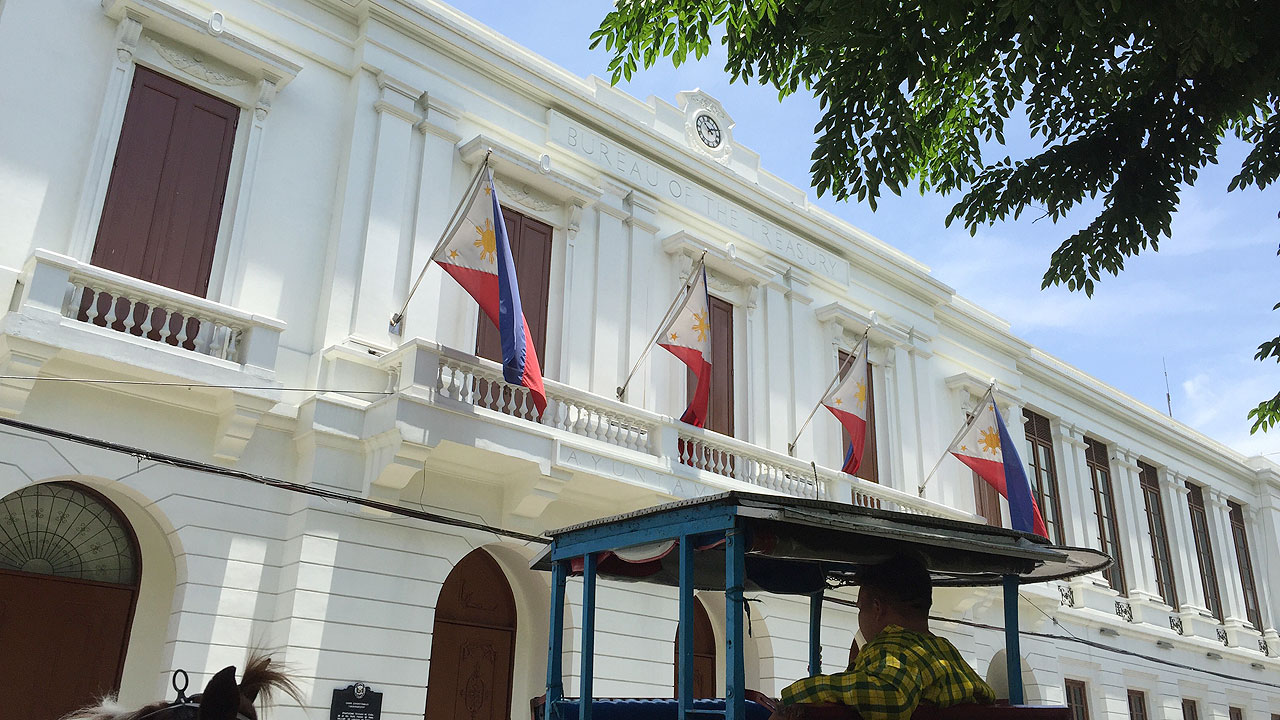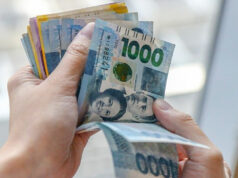T-bills fully awarded as rates drop on inflation bets

THE GOVERNMENT made a full award of the Treasury bills (T-bills) it auctioned off on Monday as rates declined on expectations of easing inflation.
The Bureau of the Treasury (BTr) raised P15 billion as planned via the T-bills it auctioned off on Monday as total tenders reached P59.77 billion, almost four times as much as the initial offer.
However, Monday’s bids were lower than the P76.37 billion in bids seen last week.
Broken down, the Treasury raised P5 billion as programmed via the 91-day securities from P17.2 billion in bids. The average rate of the three-month debt papers went down by 0.2 basis point (bp) to 0.691% from 0.693% last week.
The government also borrowed P5 billion as planned through the 182-day instruments on Monday from P24 billion in tenders. The six-month T-bill’s average rate fell by 5.4 bps to 1.023% from 1.077% previously.
Lastly, the BTr made a full P5-billion award of the 364-day papers as bids reached P18.57 billion. The average yield on the one-year papers stood at 1.408%, down by 0.2 bp from 1.41% a week earlier.
At the secondary market prior to the auction, the 91- 182- and 364-day T-bills were quoted at 0.7562%, 1.0737% and 1.4404%, respectively, based on the PHP Bloomberg Valuation Reference Rates published on the Philippine Dealing System’s website.
National Treasurer Rosalia V. de Leon in a Viber message to reporters said the BTr made a full award of its offer as there was strong buying interest for short-term papers.
T-bill rates also declined on expectations inflation eased further in January, Ms. De Leon said.
A bond trader likewise said T-bill yields moved sideways because inflation is expected to have decelerated last month.
“There are also other factors which investors considered when placing their bids in today’s bills auction such as rate hikes by the Fed and rate decisions of the Bangko Sentral ng Pilipinas in the second half of the year,” the trader said in a Viber message.
“These may be the reasons why demand at the shorter end of the curve remain robust while yields for longer-term debt have been rising in recent auctions.”
Inflation is expected to have decelerated in January, as a favorable base effect offset the rise in oil prices and the impact of Typhoon Odette on food supply.
A BusinessWorld poll of 16 analysts last week yielded a median estimate of 3% for January inflation.
If realized, this will be the second consecutive month that inflation will be within the 2-4% target band of the Bangko Sentral ng Pilipinas. It will also be slower than the 3.6% in December.
The Philippine Statistics Authority (PSA) will release the January consumer price index (CPI) report on Feb. 4 (Friday). The PSA will change the base year for the CPI to 2018 starting in the January report to reflect changing Filipino household consumption patterns.
Meanwhile, US Federal Reserve Chairman Jerome H. Powell last week said the central bank may raise interest rates starting in March, although the pace of later rate hikes is yet to be decided, Reuters reported.
The BTr plans to raise P200 billion from the domestic market in February, or P60 billion via T-bills and P140 billion from Treasury bonds.
The government borrows from local and external sources to help fund a budget deficit capped at 7.7% of gross domestic product this year. — Jenina P. Ibañez with Reuters



